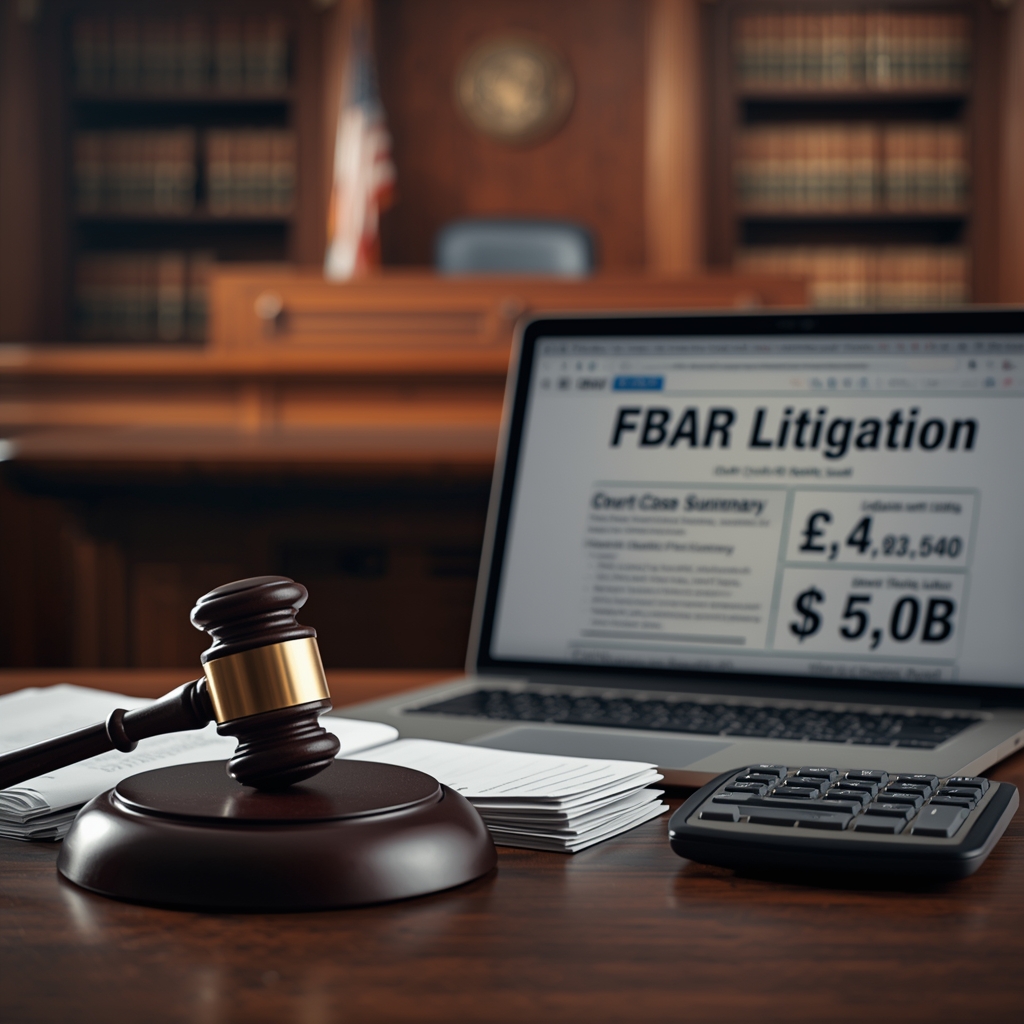FBAR Litigation Landscape: Emerging Court Decisions & Strategies to Contest Penalties
2025-08-15 06:02:43

Understand recent FBAR court decisions and learn legal ways expats and attorneys contest penalties.
Opening Paragraph
FBAR litigation is drawing new attention as recent court decisions reshape what taxpayers and attorneys can contest—whether non-willful penalties can apply per form or per account, and when heavy fines may violate constitutional limits. In this article, you’ll explore key rulings like Bittner and Schwarzbaum, learn defense strategies under the APA and the Excessive Fines Clause, and see how U.S. persons—especially expats—can use these developments to improve compliance and reduce exposure. This guide covers everything from filing basics to litigation tactics, with practical examples and expert insights.
A. What Is the FBAR?
The FBAR (Report of Foreign Bank and Financial Accounts, FinCEN Form 114) is a U.S. reporting requirement for any “U.S. person” (citizens, residents, green-card holders) holding foreign financial accounts that exceed $10,000 aggregate at any time during the year. It’s a civil requirement under the Bank Secrecy Act—not part of the Internal Revenue Code—and penalties can be steep. FBAR isn’t limited to major accounts—it applies wherever foreign holdings collectively exceed the threshold.
B. Who Must File and When
Anyone qualifying as a “U.S. person” must file annually if the aggregate foreign account balance exceeds $10,000 at any point. The original filing deadline is April 15, with an automatic extension to October 15. Missing or incorrect filings can lead to heavy civil penalties, so timely, accurate filings are vital—even for small accounts.
C. Why This Litigation Landscape Matters
FBAR penalties can be financially devastating—especially if applied per account—or trigger constitutional concerns. Recent rulings have shifted how courts interpret the law and what legal arguments are available. For expats and attorneys, staying current on these decisions is critical to contesting excessive penalties, guiding compliance, and advising clients effectively.
D. Key Emerging Court Decisions
1. Bittner v. United States – Non-Willful Penalties Are Per-Form, Not Per-Account
In Bittner, the Supreme Court held on February 28, 2023, that for non-willful FBAR violations, penalties—capped at $10,000—apply per FBAR form, not per account Supreme CourtWinston & Strawn. That means a single late or deficient FBAR, regardless of how many accounts it contains, incurs one maximum penalty—not one per foreign account Doeren Mayhewwhiteandwilliams.com.
2. United States v. Schwarzbaum – Willful Penalties and the Excessive Fines Clause
On August 30, 2024, the Eleventh Circuit held that willful FBAR penalties may violate the Eighth Amendment’s Excessive Fines Clause when they’re grossly disproportionate to the offense Eleventh Circuit Court of AppealsInsightPlustaxcontroversy.foxrothschild.comMassachusetts Bar Association. In Schwarzbaum’s case, the court struck down $300,000 in penalties tied to a small, unreported account under $16,000, though it upheld the rest Eleventh Circuit Court of AppealsInsightPlus.
3. Circuit Split with Toth
The Schwarzbaum decision creates a circuit split: the First Circuit, in Toth, held FBAR penalties are not subject to the Excessive Fines Clause The Tax Adviserstatic.maglaw.com. The clash between Schwarzbaum and Toth may invite Supreme Court review down the line InsightPlusstatic.maglaw.com.
E. Filing Process & Litigation Strategies
Administrative Procedure Act (APA) Challenges
Because FBAR penalties fall under Title 31—not tax law—they may be challenged under the APA for being arbitrary or lacking proper rule-making Eleventh Circuit Court of AppealsMassachusetts Bar Association. Courts may remand to IRS for recalculation or strike down outdated or improper computations.
Forum Selection & Payment Strategy
FBAR disputes cannot be heard in Tax Court. Challenges must go through U.S. District Court or the Court of Federal Claims taxcontroversy.foxrothschild.comEleventh Circuit Court of Appeals. Strategic choices about where to sue—and when to pay—can influence outcomes and limit procedural disadvantages such as the Flora rule.
Leveraging Precedent
Use Bittner to defend non-willful cases, and Schwarzbaum in jurisdictions that follow it—or use constitutional arguments if facing outlier penalties. Where neither applies, APA and procedural tools offer fallback options.
F. Common Mistakes to Avoid
-
Filing FBAR arguments in Tax Court instead of federal district court or claims court.
-
Overlooking APA arguments—missed opportunity to challenge penalty calculations.
-
Ignoring constitutional relief in small-balance, willful penalty cases.
-
Failing to track developments—jurisdiction matters greatly post-split.
G. Best Practices
-
Start early: assess if violations are non-willful or willful, file accurately, and gather documentation.
-
In non-willful cases, highlight Bittner and argue per-form penalty application.
-
In willful cases with small accounts, raise Excessive Fines Clause concerns.
-
Use APA challenges when IRS calculations seem excessive or procedurally flawed.
-
Choose your venue carefully, understand rules of each, and consult experienced FBAR attorneys where needed.
H. Real-Life Example (Anonymized)
In Schwarzbaum’s case, one unreported foreign account held less than $16,000 but attracted a $100,000 penalty each year—clearly disproportionate. The Eleventh Circuit agreed, striking that portion of the penalty while upholding the rest, yielding a significant penalty reduction InsightPlusEleventh Circuit Court of Appeals. This shows even one small account can make constitutional relief possible.

FAQ
1. Can I contest an FBAR penalty already paid?
Yes. You may seek a refund via District Court or Claims Court, though APA defenses can be more limited post-payment.
2. Does Bittner apply to willful penalties?
No. Bittner applies only to non-willful penalties, limiting them to $10,000 per form, not per account.
3. What if my unreported account had a low balance?
In jurisdictions following Schwarzbaum, that may support an Excessive Fines Clause argument—if penalty severely outweighs account value.
4. Can FBAR penalties be reviewed as “fines” under the Eighth Amendment?
Yes—at least in the Eleventh Circuit. The First Circuit disagreed. The split may reach the Supreme Court.
Closing Paragraph
FBAR litigation continues to evolve. Rulings like Bittner and Schwarzbaum, along with APA-based defenses, have reshaped how penalties can be contested. U.S. persons and their attorneys—particularly expats—can use these developments to contest excessive penalties, choose the right venue, and make compliance more predictable. With the right legal strategy and expert support when needed, navigating FBAR challenges can feel less daunting.
Visual Recommendations:
-
Infographic comparing "per-form" vs. "per-account" penalties under Bittner.
-
Flowchart mapping litigation avenues: non-willful vs. willful; forms, APA challenges, constitutional defenses.
Schema Suggestion:
-
Use Article schema for the blog.
-
Include FAQ schema for the four questions above.
M.Daniyal